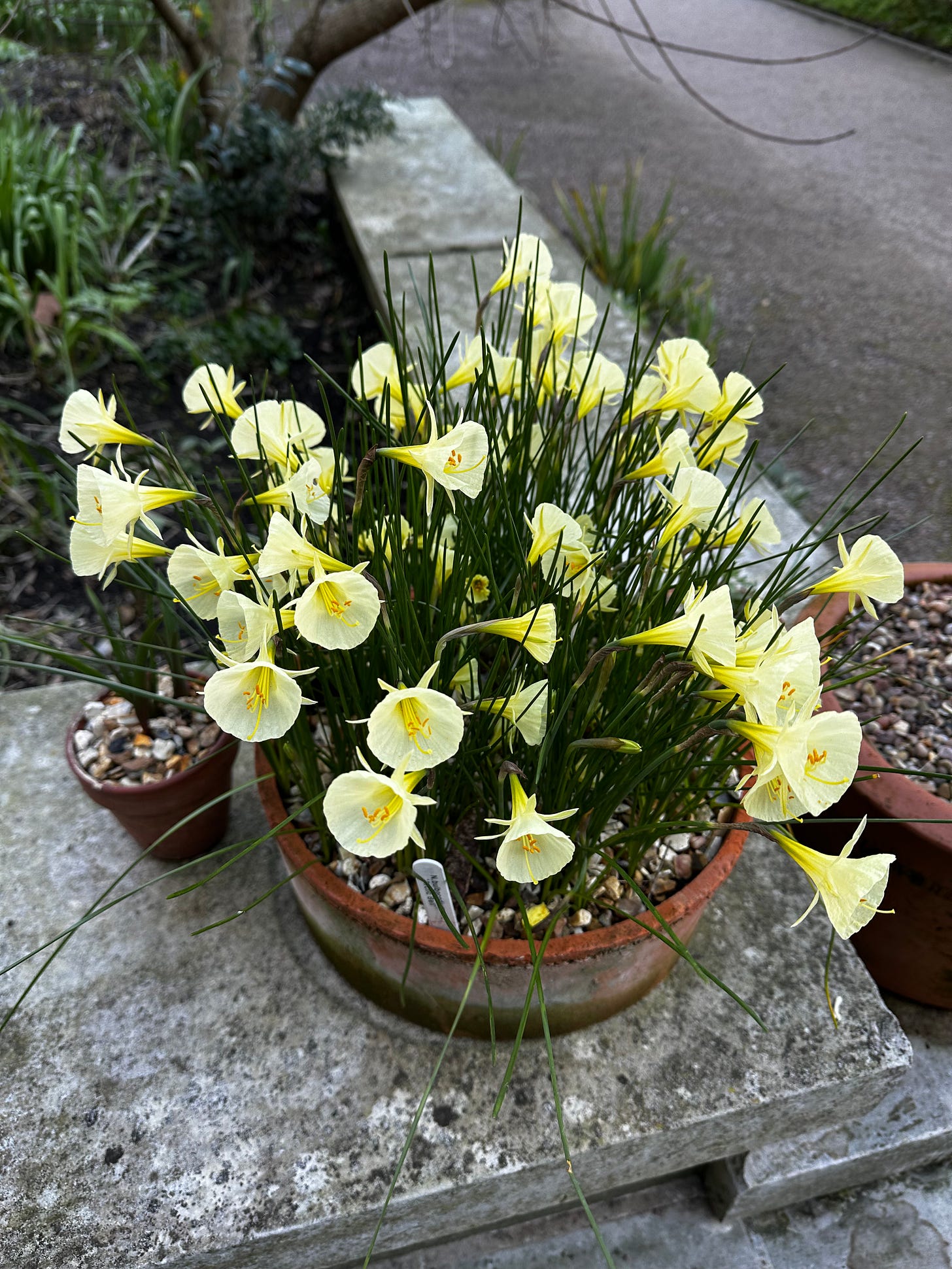This past weekend we had a friend-of-a-friend visiting London from Taiwan: he had the dubious honour of being the first person to sleep on the new sofa-bed in my study. But that was not the only treat in store for him.
Asked if there was anything in particular he would like to do while in London, his immediate response was that he wanted some salt and vinegar crisps. An entirely reasonable request, of course (and I must do a post at some stage on the relative merits of the various brands of supersour crisp flavours), but I had not realised that salt and vinegar is something unavailable in large swathes of the world. How, I ask myself, do they manage without? Somehow they do. Something as glorious and necessary as the salt and vinegar crisp is, here at least, taken for granted: but it is a delight to a visitor.
There were other such instances:
Walking with my friend to a bakery, I glanced down Alwynne Villas, to see an old Victorian street lamp wearing, as if in a Mardi Gras parade, a headdress of vibrant and deep pink plum blossom. A beautiful scene, I noted. He agreed, but also enquired of me about all the “really beautiful and cool” yellow flowers he saw everywhere. “What? Daffodils?” I asked. A pause and then an instance of realisation: “like in that song about Vincent Van Gogh?”. The very same: sketch the trees and the daffodils. He’d never seen them before.
My friend had been due to go to Iceland (the country) this week but that leg of his trip was cancelled. This was a particular source of regret because he has never seen snow. For now, he must be satisfied to paint the breeze and the winter chills.
Salt and vinegar crisps, narcissi, snowfall: all things we in the UK take rather for granted. Yet the excitement of my Taiwanese visitor taught me that I too should be excited about them. The crisps are great, the flowers are really beautiful and cool and, do you know what, we have been short-changed this winter without even the faintest sieve-dusting of snow. We should see the familiar through new eyes, I think: we should be able to feel awe in the mundane.
This is not a new or new-age idea, something dreamt-up by the cringily-earnest on self-help TikTok or whatever.
In Meditations, Marcus Aurelius says (3.2):
To take one instance, bread when it is being baked breaks open at some places; now even these cracks, which in one way contradict the promise of the baker's art, somehow catch the eye and stimulate in a special way our appetite for the food. And again figs, when fully mature, gape, and in ripe olives their very approach to decay adds a certain beauty of its own to the fruit. Ears of corn too when they bend downwards, the lion's wrinkled brow, the foam flowing from the boar's mouth, and many other characteristics that are far from beautiful if we look at them in isolation, do nevertheless because they follow from Nature's processes lend those a further ornament and a fascination. And so, if a man has a feeling for, and a deeper insight into the processes of the Universe, there is hardly one but will somehow appear to present itself pleasantly to him, even among mere attendant circumstances.
And, “[c]onsider,” Matthew says Jesus said, “the Lily of the Field, how they grow; they toil not, neither do they spin: and yet I say unto you that even Solomon in all his glory was not arrayed like one of these.” (Matt. 6:28-29).
It’s a theme in the Abrahamic religions: in the Bereisht Rabbati (10:6), we read “there is no blade of grass without an angel bending over it and whispering “Grow!”” (a pretty lovely idea), and in the Holy Quran the question of mankind “Do they not look at the camels – how are they created? – and at the sky – how is it raised?” (88: 17-18): a potent injunction to wonder, although my limited experience with camels tells me that they are no doubt created with a great deal of fuss and protest.
But book-ending those quotes we have a similar focus in 20th Century literature - detached from religion per se – that sees as the key to a meaningful interaction with the world, an ability to see the commonplace through new, awe-struck eyes. Thus:
“I believe a leaf of grass is no less than the journey-work of the stars”(Walt Whitman, Song of Myself, (1855))
And in an odd echo, “the only true journey…is not to travel to new landscapes but to acquire new eyes” (Proust, Le temps retrouvé, (1927))
And finally, “if your ordinary life seems poor, do not blame it; blame yourself that you are not poet enough to call forth its riches; for to the creator there is no poverty and no indifferent place” (Rainer Maria Rilke, Letters to a Young Poet, (1903))
My Taiwanese friend is poet enough. I hope to be too.





